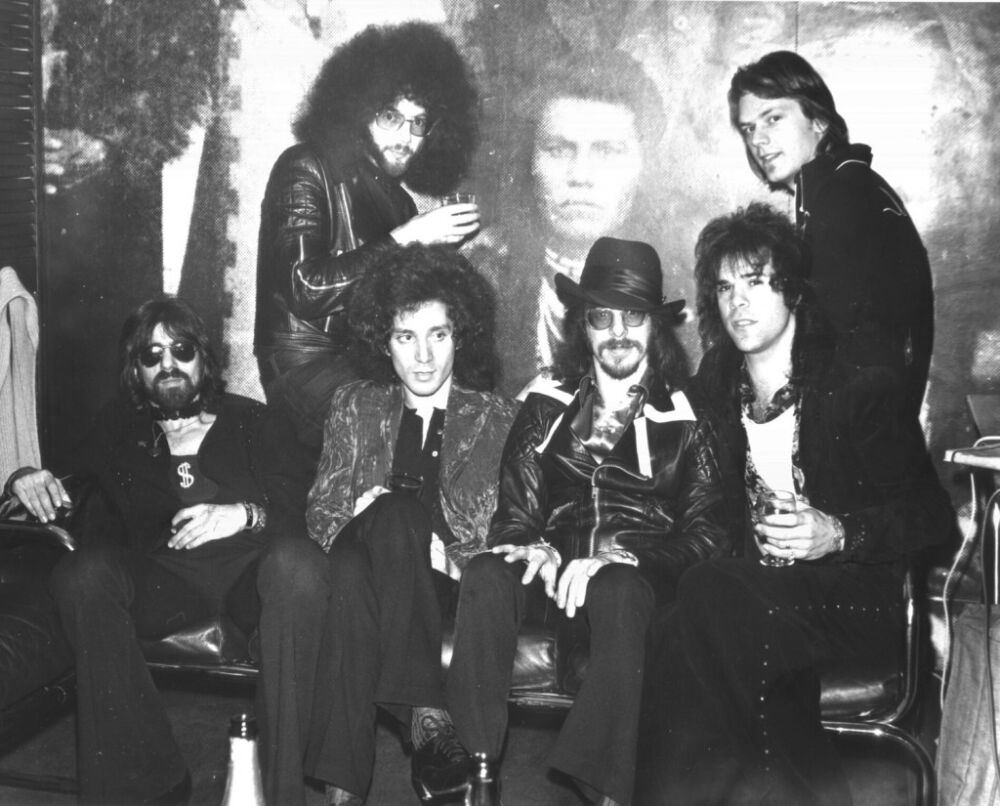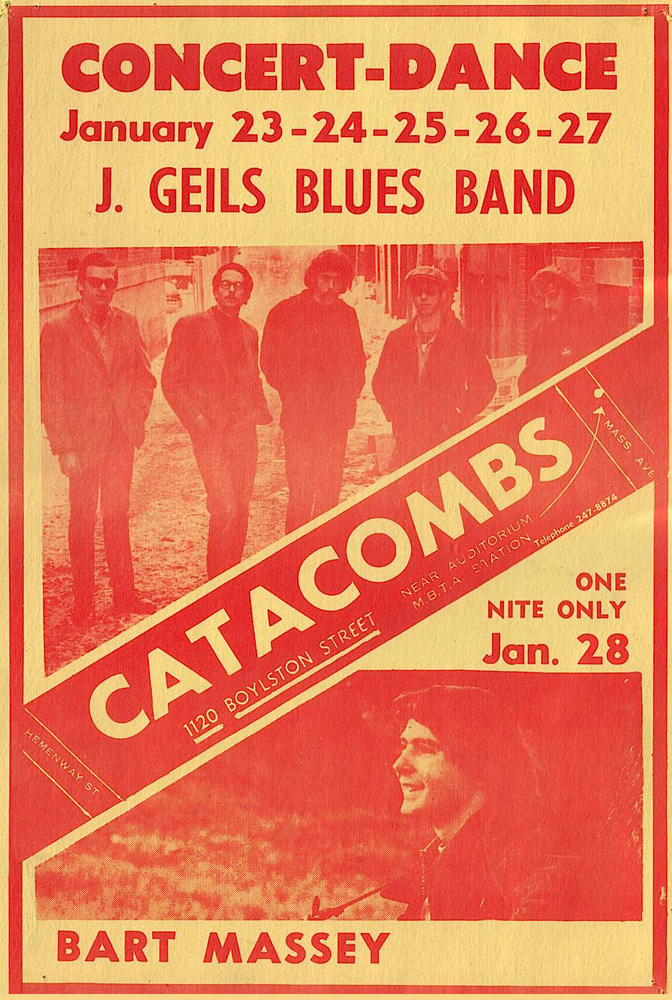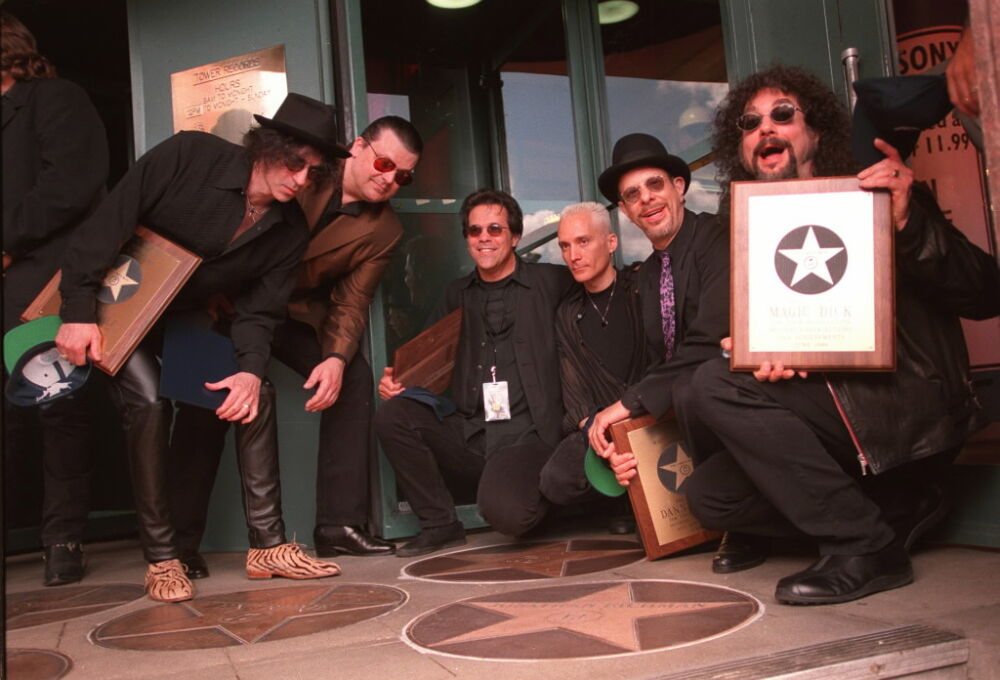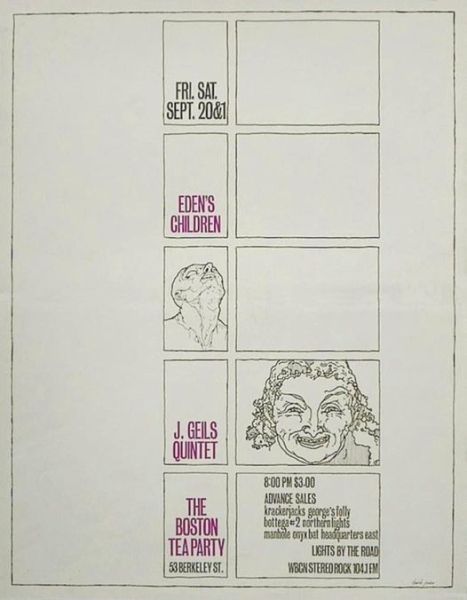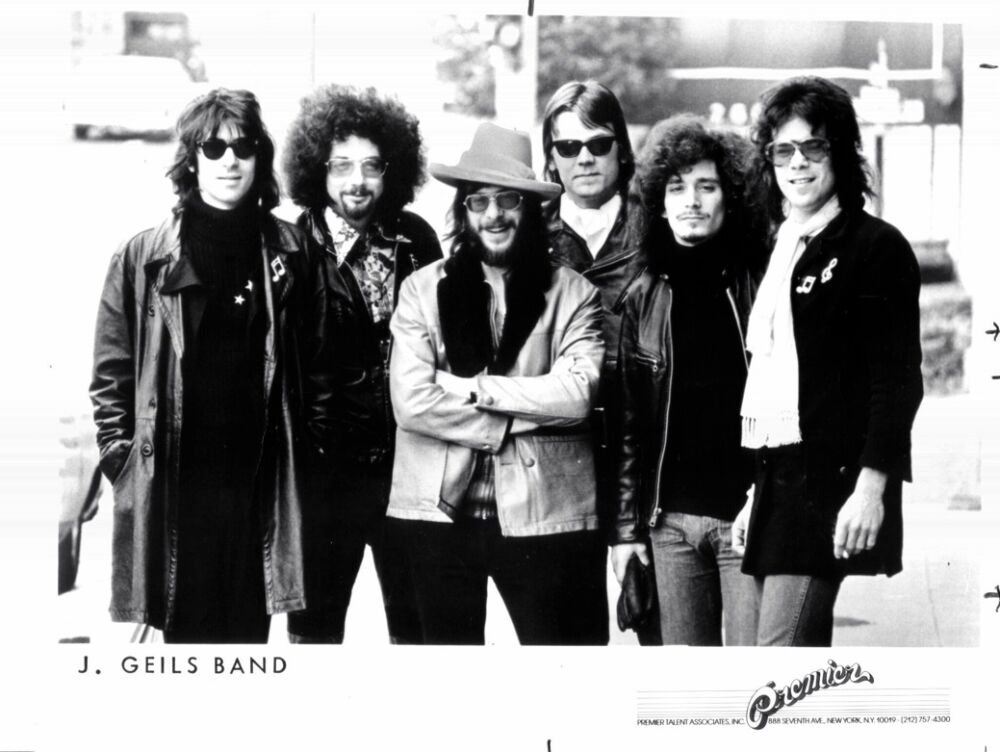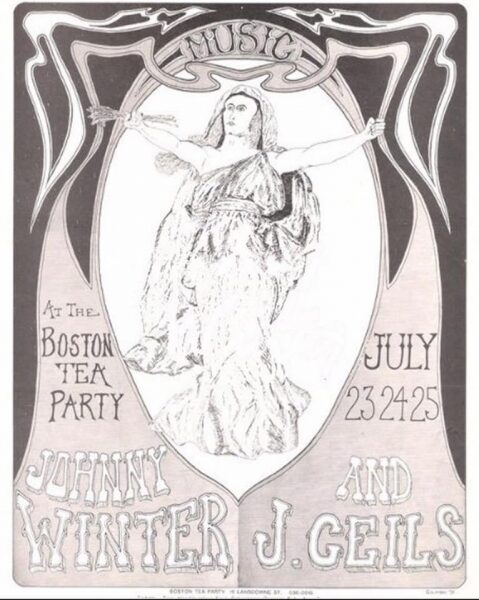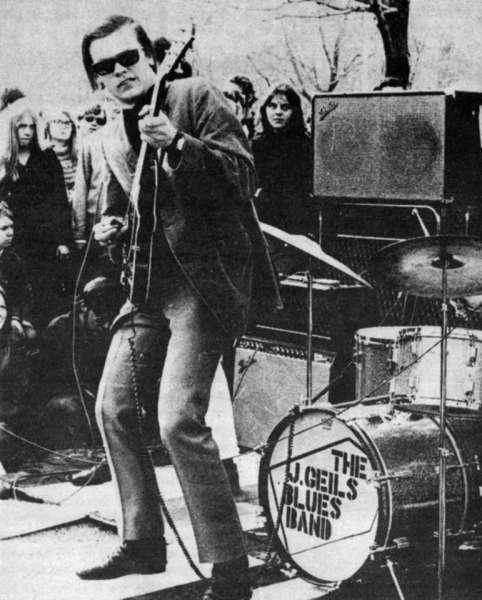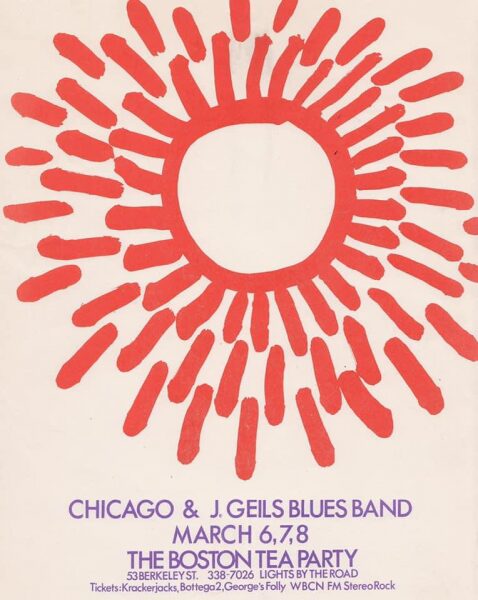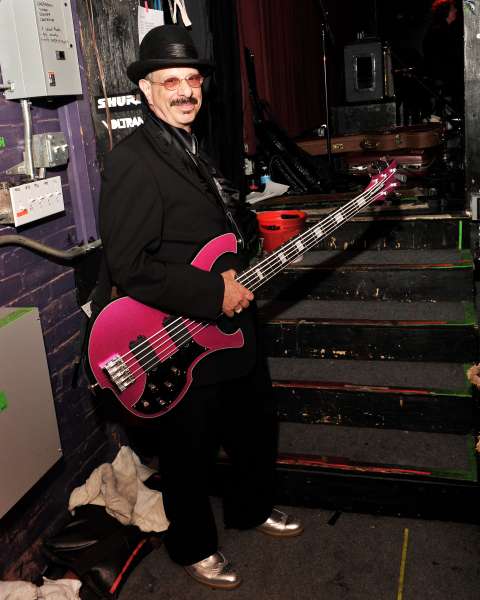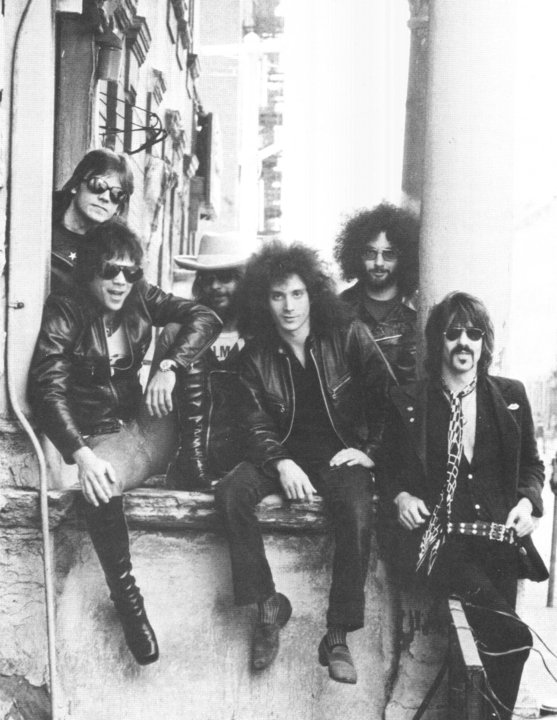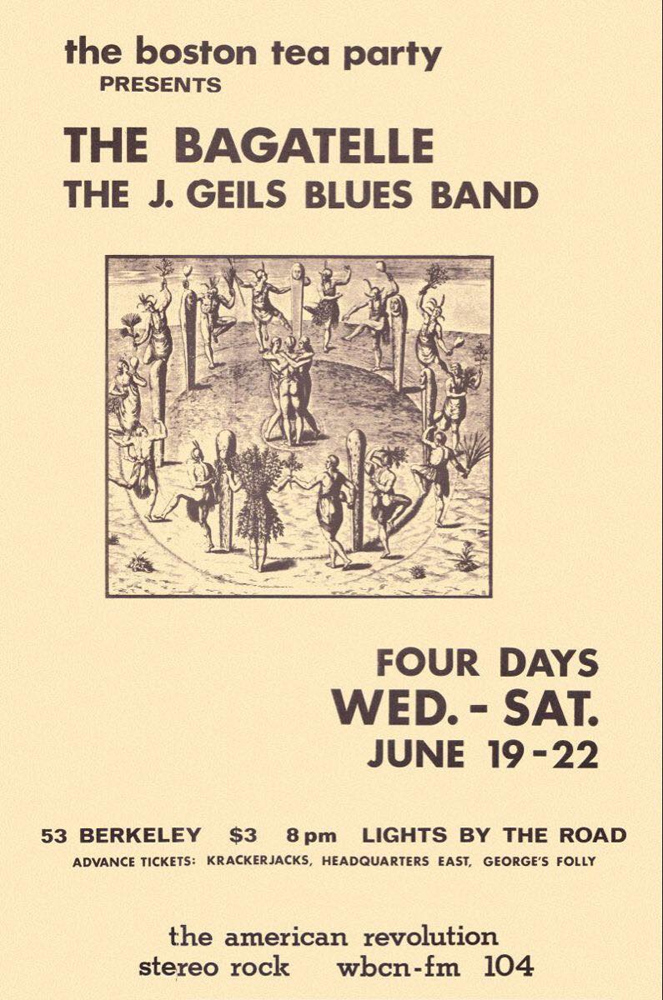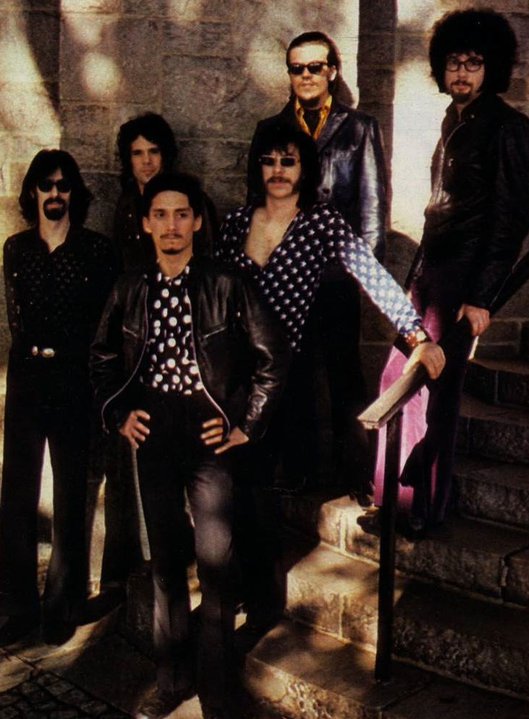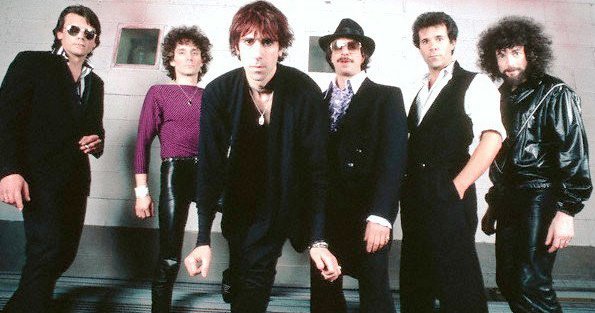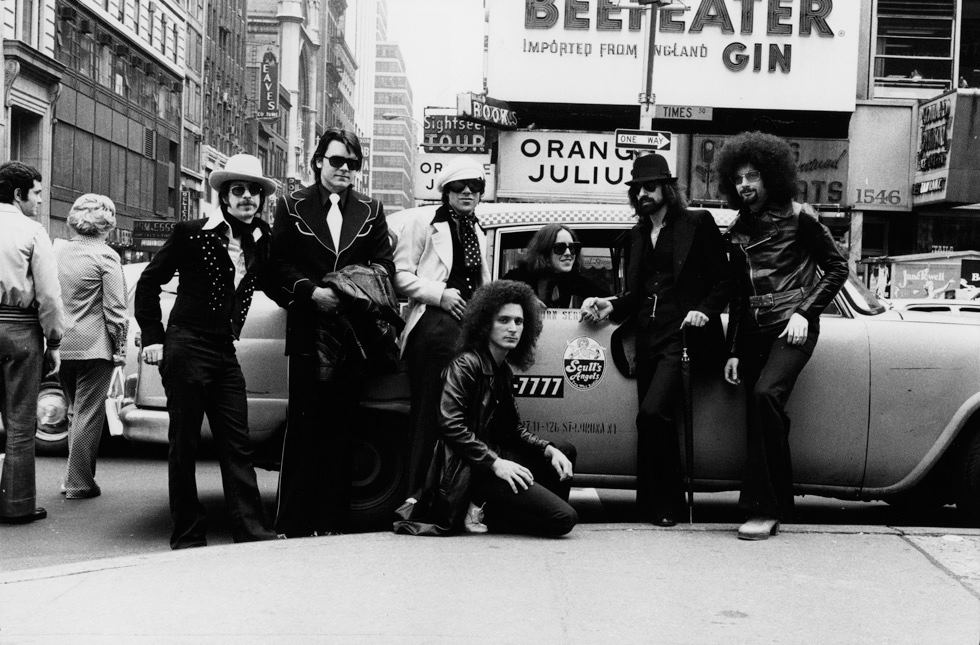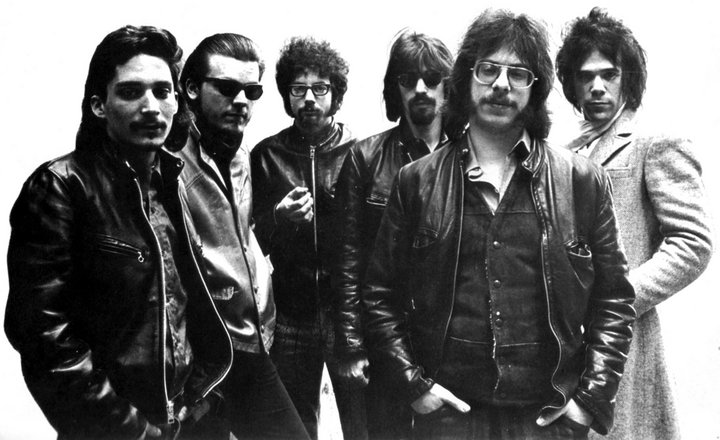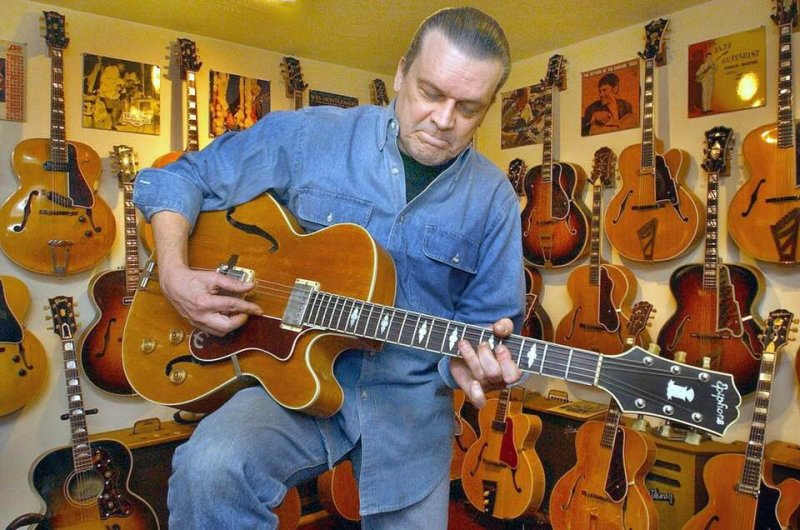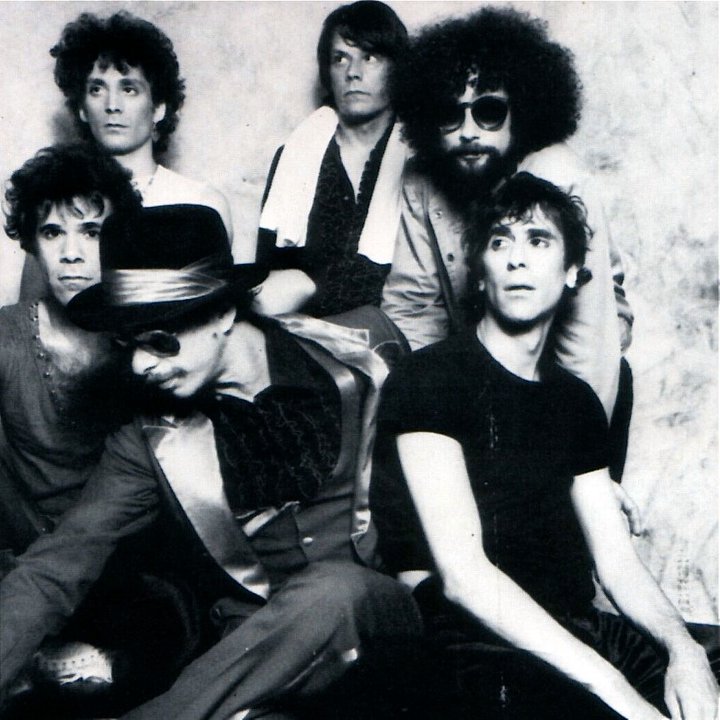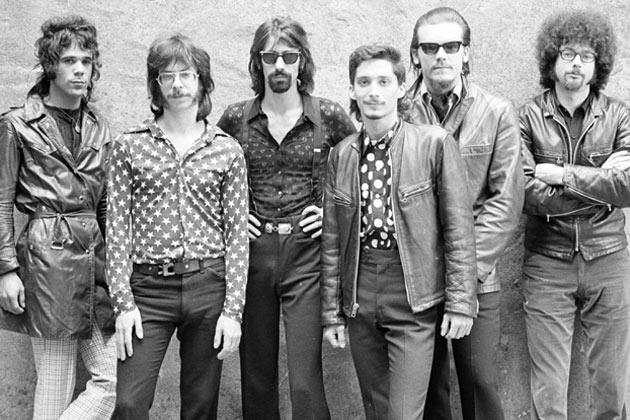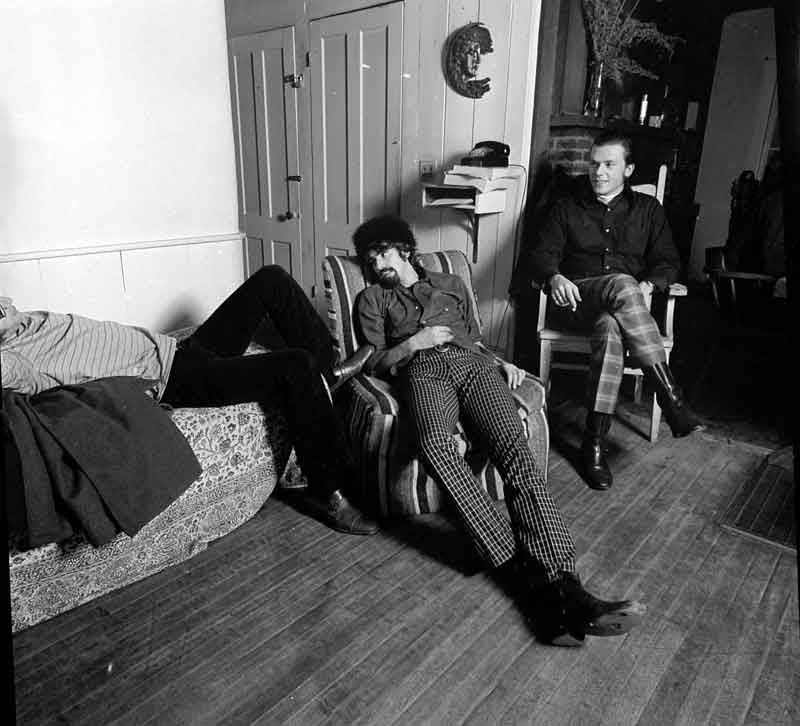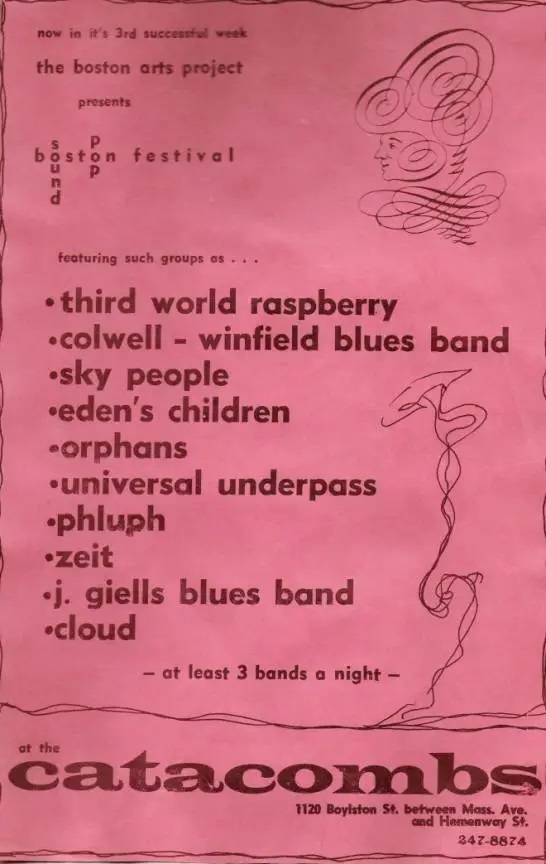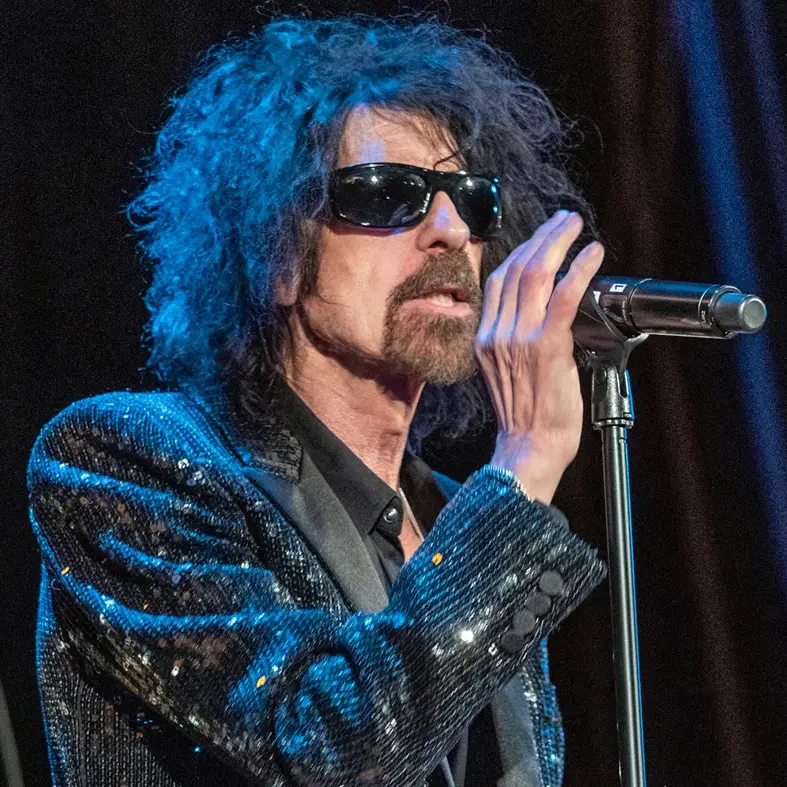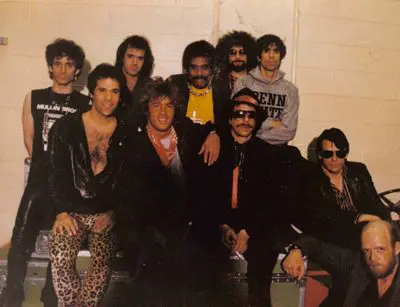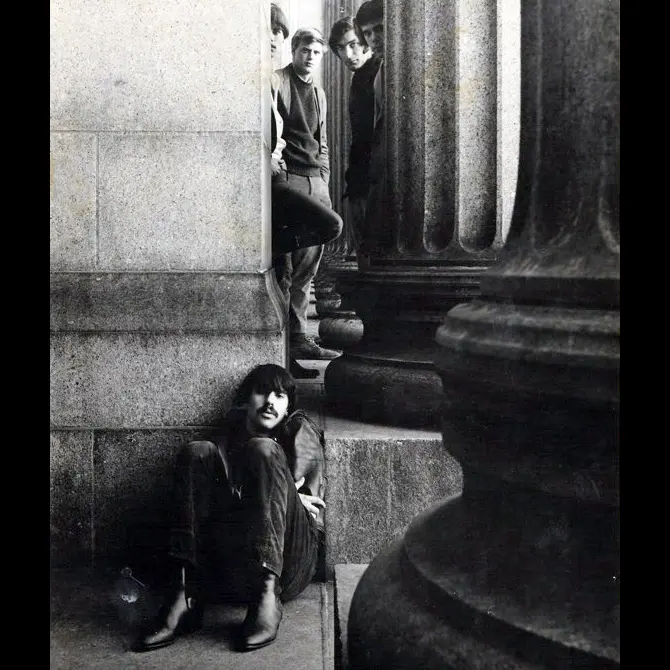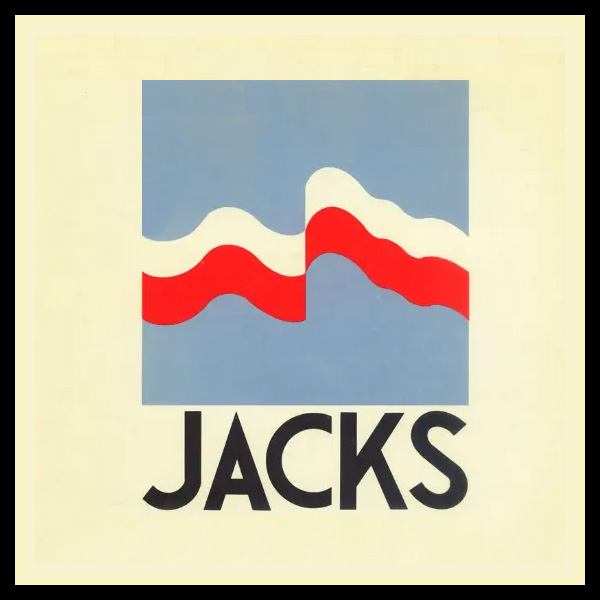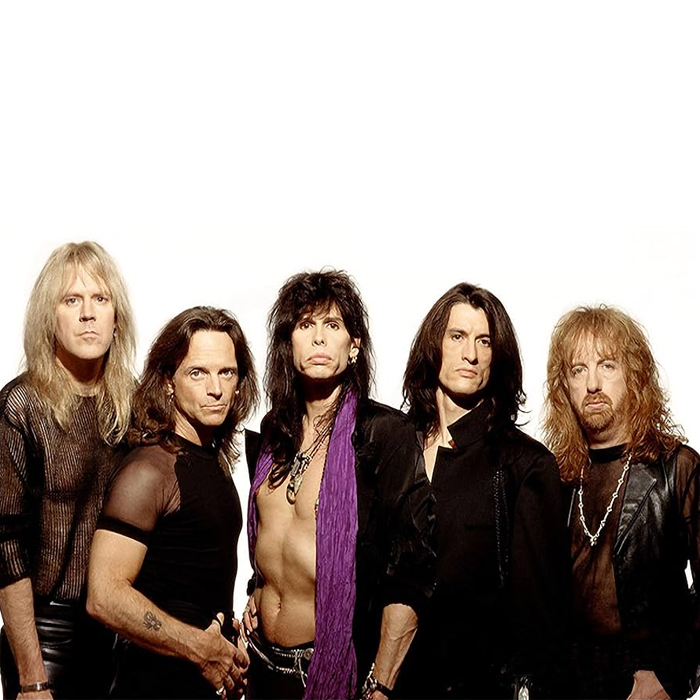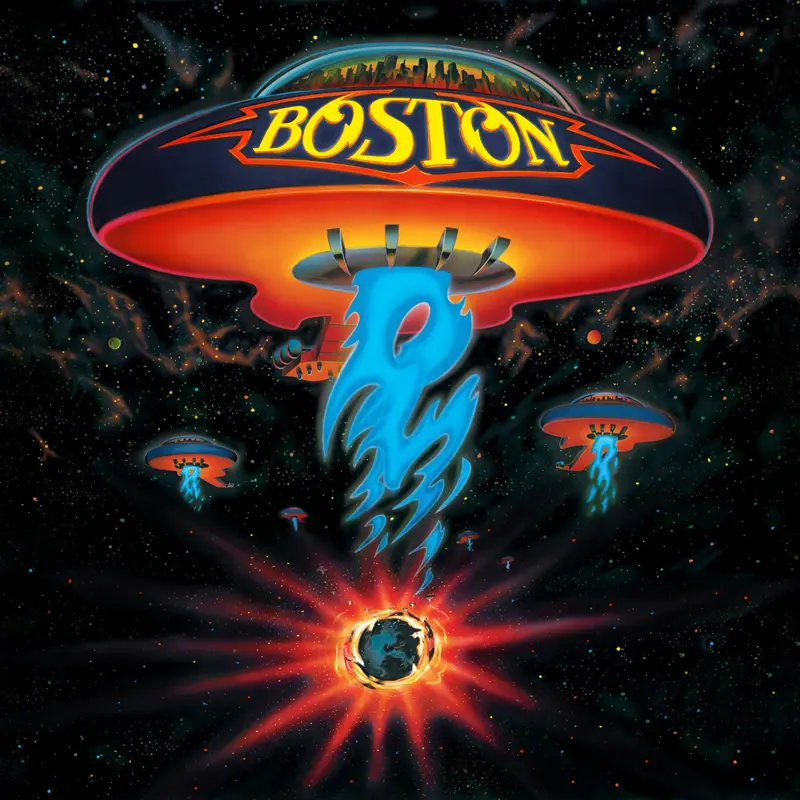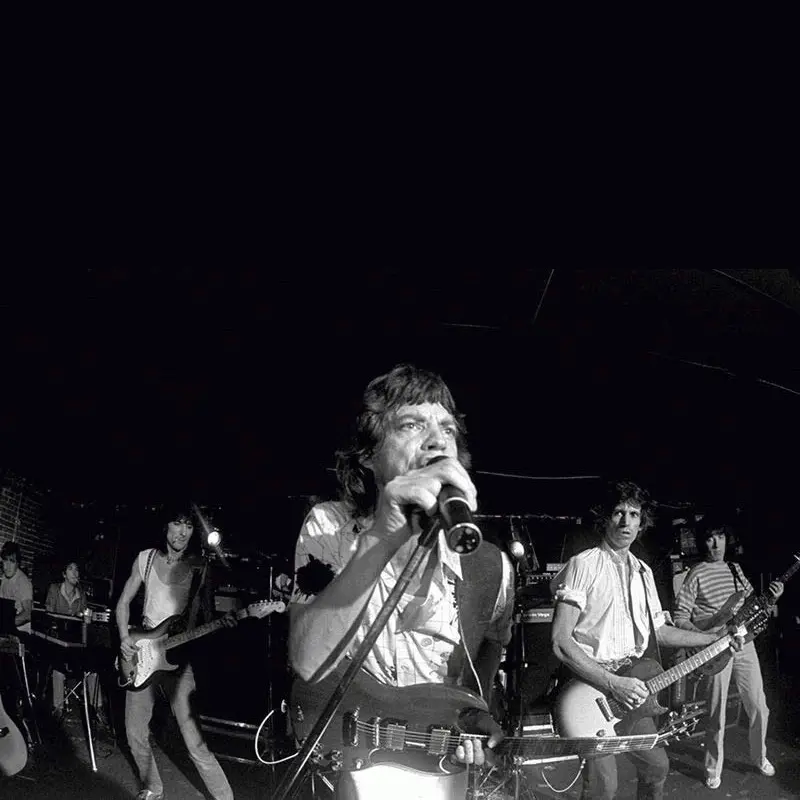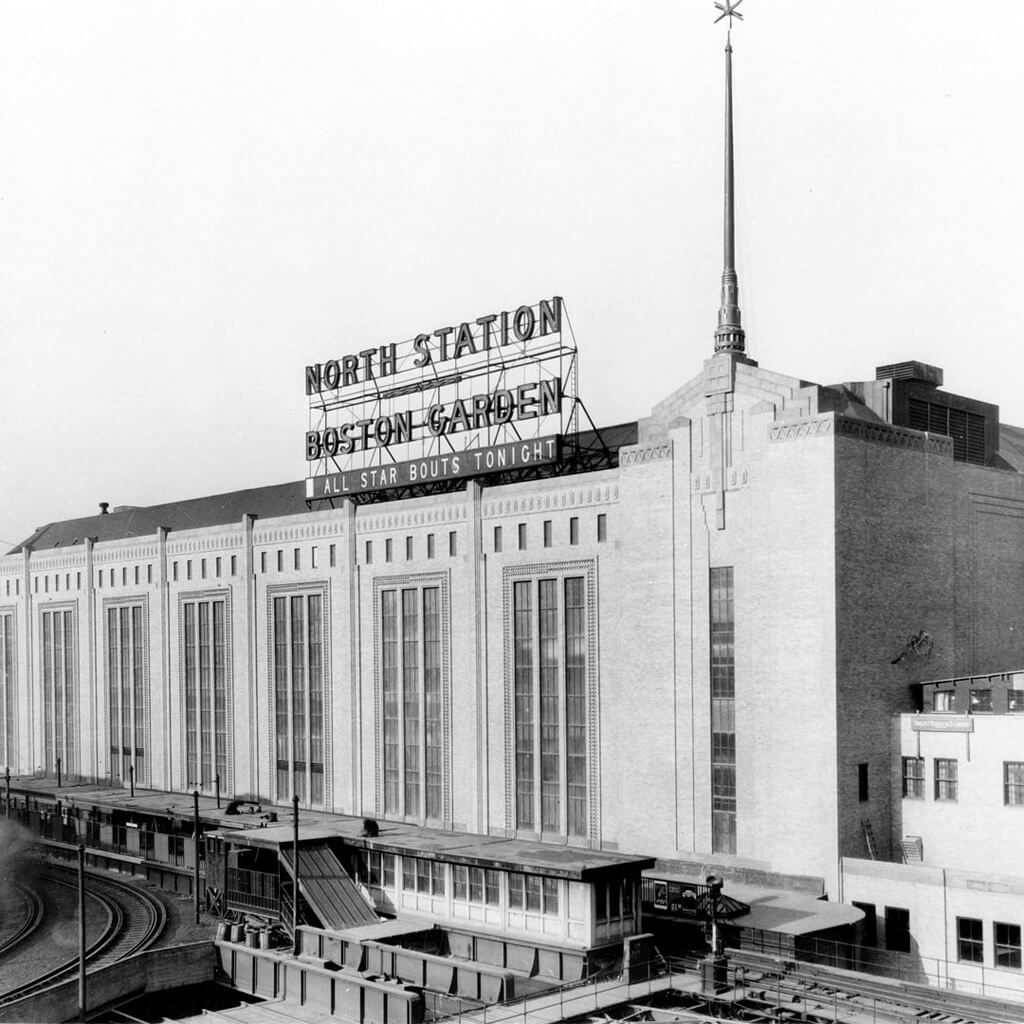The J. Geils Band
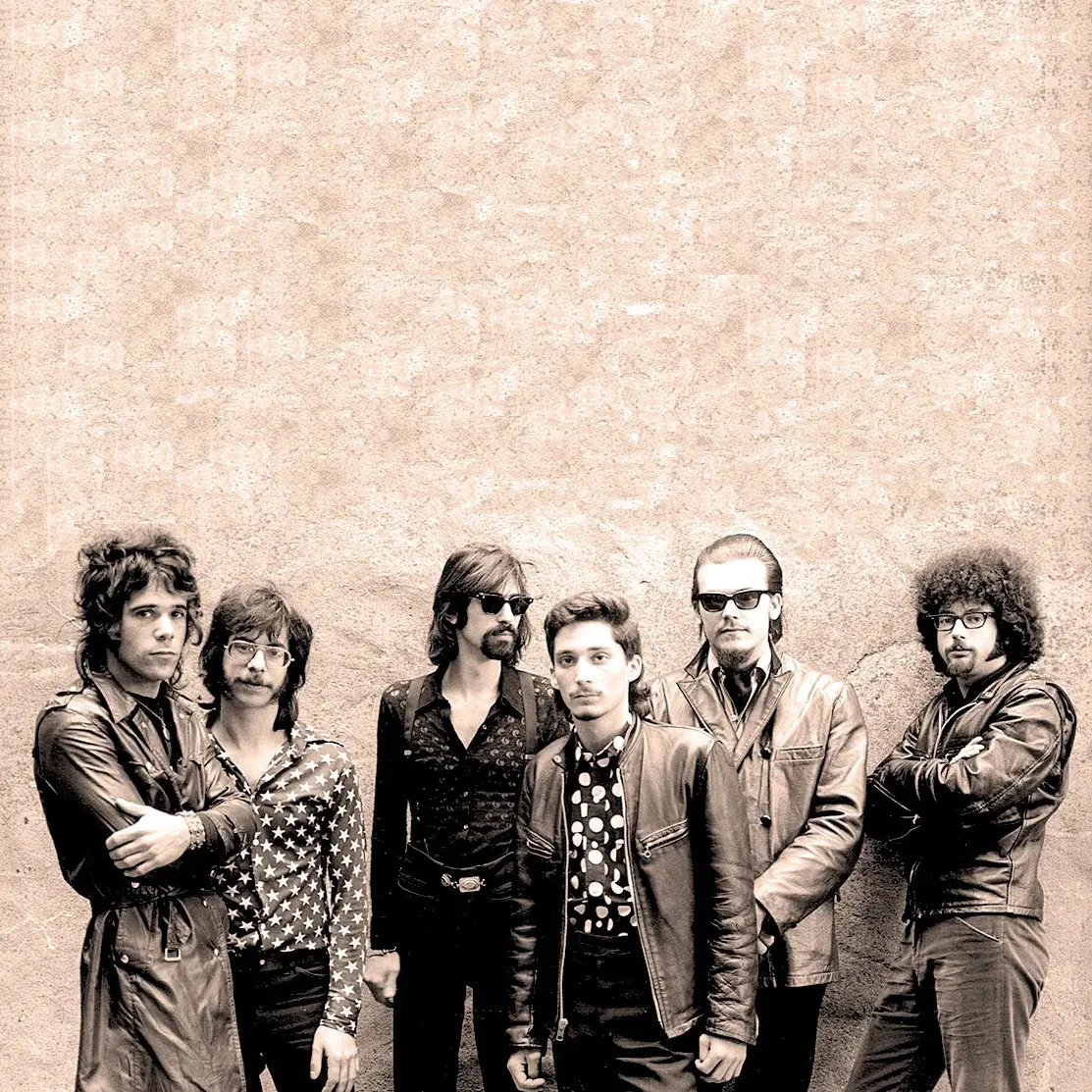
The foundations of The J. Geils Band were laid in Worcester, Massachusetts, in 1967, when John “J.” Geils, a student at Worcester Polytechnic Institute, was the acoustic-slide guitarist in a trio, The J. Geils Blues Band, the other members being a master harmonicist and an acoustic bassist. Fans of the band can name them both instantly: Magic Dick (born Richard Salwitz) and Danny Klein (nicknamed Dr. Funk). With the addition of a vocalist-keyboardist Seth Justman, drummer Stephen Bladd and intensely charismatic lead singer Peter Wolf, the group came to define the Boston rock scene of the late ‘60s and early ‘70s, years before Aerosmith and Boston had recorded their debut albums.
FORMATION, “AMERICA’S ROLLING STONES”
Born Peter Blankenfeld in the Bronx in 1946, Wolf moved to Boston in 1964 to study at the School of the Museum of Fine Arts and in the spring of 1968 he became the first all-night disc-spinner at the city’s new FM rock station, WBCN, using the on-air handle “the Woofa Goofa.” When Wolf heard the J. Geils Blues Band at a Cambridge club one night in mid-1968, he saw the future.
At that time, he was fronting a wildly popular local blues/rock group that formed in Boston in 1965, The Hallucinations, and he particularly liked working with the band’s drummer, Stephen Bladd. He proposed to Geils that he and Bladd join his group to form a Boston-based, amped-up, ramped-up version of The J. Geils Blues Band – and Geils agreed. Justman joined the newly electrified combo on piano and organ and by mid-1968 The J. Geils Band’s lineup was set. It held steady for 14 years and as many albums.
When the group came together, high-concept prog-rocks bands like Pink Floyd, Genesis, ELP and Yes were gaining popularity but the JGB was as far removed from prog as they were from classical, with many critics calling them a “bar band” and “America’s answer to The Rolling Stones.” A powerful frontman, an enigmatic guitarist and a punishing rhythm section are similarities enough. Were they the best American bar band in rock ‘n’ roll history? The strong case could be made.
FULL HOUSE, 1980S SUCCESS
The band’s 1972 live album, Full House, would certainly support the “best-bar-band-in-history” argument. A monster set of music played at the 2,000-seat Cinderella Ballroom in Detroit (a city that served as the band’s second home), side one is some of the most hard-driving, tight and raucous 15 minutes of live rock ‘n’ roll you’ll find anywhere and side two features the knock-down, drag-out slow blues “Serves You Right to Suffer,” closing with the tireless pounding of “Looking for a Love.” Note to rock musicians: If you want to know how to end an up-tempo jam, this is exactly how it’s done.
After recording eight studio albums and a second live disc in the ‘70s (Blow Your Face Out, partially recorded at Boston Garden), the JGB began what amounted to a second lifetime in 1980, reinventing their sound to suit the new decade. The resulting success far outstripped all the recognition, adulation and record sales they had ever experienced as a gut-bucket rock ‘n’ roll outfit. A string of gigantic hits including “Love Stinks” (1980), “Centerfold” (1982) and “Freeze Frame (1984) kept the band at the top of the rock charts far longer than most bands of their era. Wolf and Justman’s songwriting partnership was beyond impressive and many of their tunes have appeared in television and films in addition to reaching the top 40 in the Billboard charts.
DISBANDING, GEILS’ DEATH, LEGACY
A prickly breakup in 1983 was finally settled and a number of reunion dates were scheduled beginning in 1999. J. Geils died in 2017 after spending his final decades playing mostly jazz in and around New England with his own trio or quartet. If there were a New England Rock ‘n’ Roll Hall of Fame, the J. Geils Band would be first-round inductees.
In the classic strutting-with-a-straight-stand rock star avatar established and defined by Robert Plant and Mick Jagger, America had no finer offering in the category than Peter Wolf. If there has ever been a better American front man in that tradition, it’s probably Aerosmith’s Steven Tyler (who happens to be a Boston transplant from New York City like Wolf). It’s arguable that nobody stateside even comes close to either one, and if you want to take that Gene Kelly, Ken Berry, Danny Kaye polished song-and-dance man into the rock idiom, it’s hard to imagine a frontman on the US or UK side of the Atlantic that put more energy into their performances than Peter Wolf. Well, maybe James Brown.
(by Chris Elliott)

